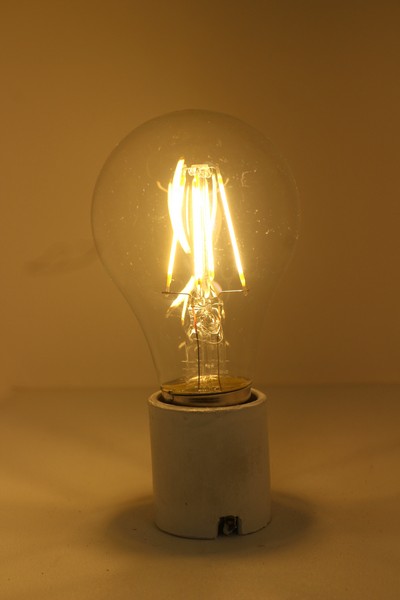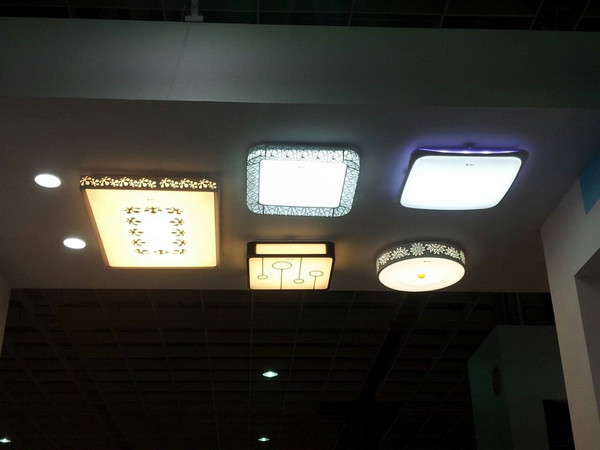Did a boycott of Chinese products on India social media websites cause the sharp decline of LED bulb imports? A movement launched on Indian social media platforms during the annual lighting festival Diwali on Oct. 31, 2016 resulted in a 30% to 50% revenue decline of energy efficient lights and LED bulbs in Mumbai.
Traders selling products to India told National Business Daily reporter, that the boycott had little to do with steep decline in LED bulb exports. Chinese LED exports to India plummeted nearly 80% because of newly introduced LED bulb certification standards last year, which required all imported bulbs to be certified by The Bureau of Indian Standards (BIS), they said. Stringent implementation of the new certification standards was the main cause of tumbling sales, and had little to do with the social media movement in India to ban consumption of Chinese goods.
A Chinese trader in India claimed, the above developments has led the company to refocus its trading strategy in India on LED components and high end LEDs in the future.
 |
|
MLS LED filament bulbs. (LEDinside) |
Implementation of BIS certification causes fall in Chinese LED bulb exports
The BIS is the government agency responsible for certifying LED bulb products in India.
The BIS certification implemented in May 2015 is similar to China’s 3C certification, and its implementation has barred Chinese LED manufacturers without BIS approval from entering the Indian market.
Some Indians started to boycott Chinese LED products during this year’s Diwali, which takes place on the same day as Halloween, and media reports on CFL and LED bulb sales are difficult to estimate because they are mostly done by retailers, said Ita Lin, the CEO of Forest Lighting (MLS) arm in India.
India’s volatile electric voltage surges has made it difficult to create an effective environment to use LEDs, said Guo Xiu, the Secretary General of Guangdong Illuminating Electricity Association. Moreover, the Indian market is chaotic and price sensitive, retailers are only concerned about LED prices that may put Chinese LED bulbs at a distinct disadvantage. The price difference of Chinese LED bulbs that meet BIS and those without can be up to three times, which is why most LED companies exporting to India have been SMEs.
In addition, Chinese made LED bulbs and luminaires low pricing advantages is disappearing. The prices of Indian manufactured BIS certified LED bulbs are nearing those of Chinese competitors, which has greatly diminished the price appeal Chinese bulbs once had in the market, said Lin.
 |
|
MLS LED ceiling lights. |
Chinese companies export LED components and high end products
The implementation of the BIS certification has eroded Chinese LED manufacturers low price advantages, but India’s large LED market demand potential in the future has spurred Chinese LED manufacturers and traders to change their export strategies.
Many Chinese companies trying to enter the Indian LED market are following developments closely, and preparing to enter the market in the future, said Duanxing Lo, General Manager of Hanfeng Lighting Company. The implementation of BIS certification has blocked large volumes of Chinese LED bulb or lamp imports from entering the Indian market, instead the majority of Chinese companies are exporting LED components to India. The Indian government has been offering tax rebates and financial subsidies to foreign LED component manufacturers, and giving them preferential access to local resources because they are creating jobs in the domestic market. Moreover, labor costs in India are lower than in China.
Initially, most Indian buyers in China made contact with low end LED manufacturers, which enabled traders to act as the middle man, resulting in low end LED companies clinching India’s non-bidding market, said Guo Xiu, the Secretary General of GIEA.
MLS has been the only listed Chinese LED company that established a large manufacturing facility in India, according to National Business Daily. Even though India has low-level consumption, it has large future LED demands. The Indian government’s decision to roll out a replacement for 700 million incandescent bulbs nationwide spurred MLS to set up a manufacturing site in India to provide semi-finished LED products. By supplying LED components and semi-finished products, only the buyer of MLS components needs to have BIS certification. The regulations implemented by BIS only require the buyer or manufacturer to be approved.
A Chinese trader noted the future LED trading trend will turn to LED components, and provide more professional services. Moreover, the extreme wealth gap in India, growing specialization in the local LED industry will urge Chinese traders to gravitate towards selling and trading high end LED products.
The Indian LED market technology capacity is at the LED packaging stage, and still rely heavily on Chinese LED component imports because they still lack the manufacturing capabilities, said Ita Lin of Forest Lighting.













